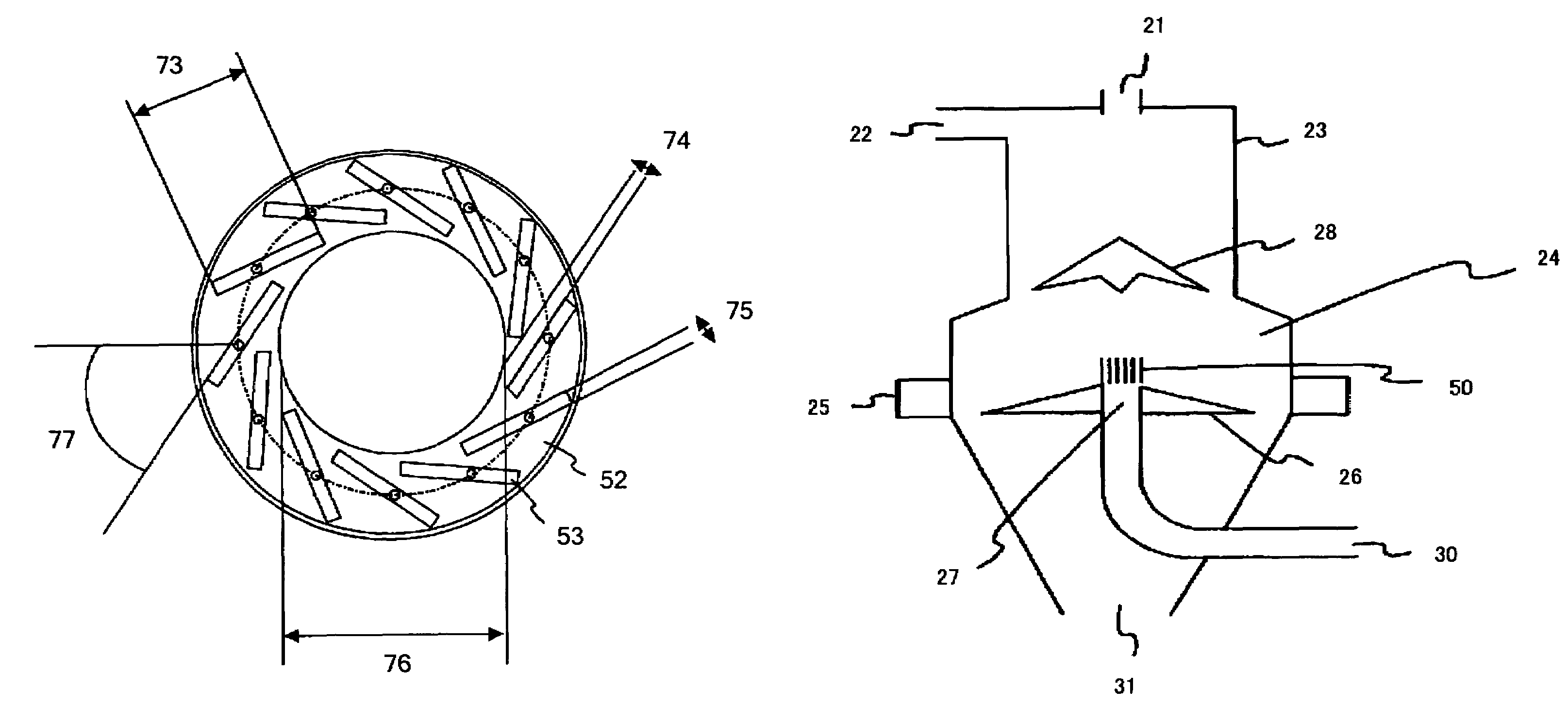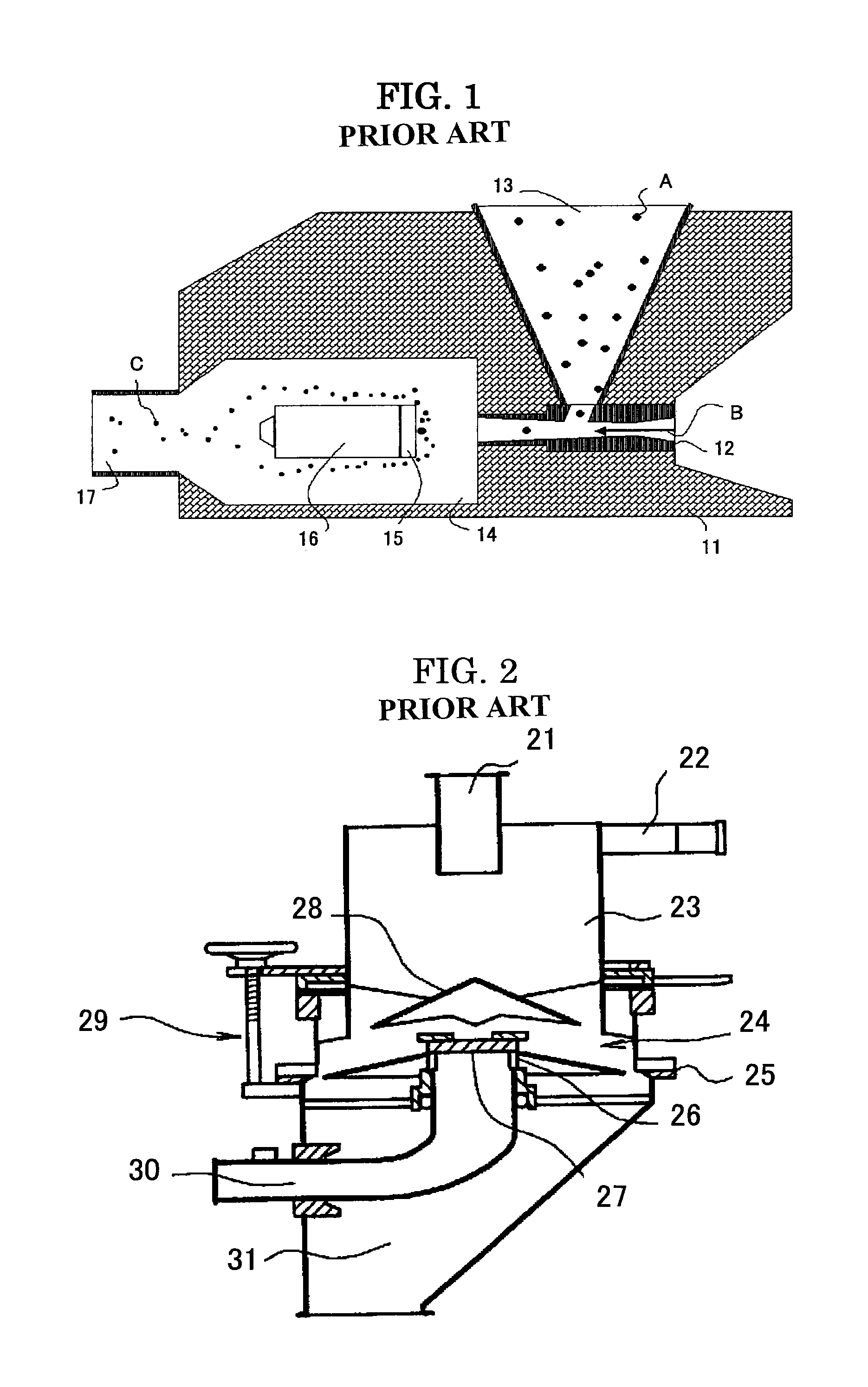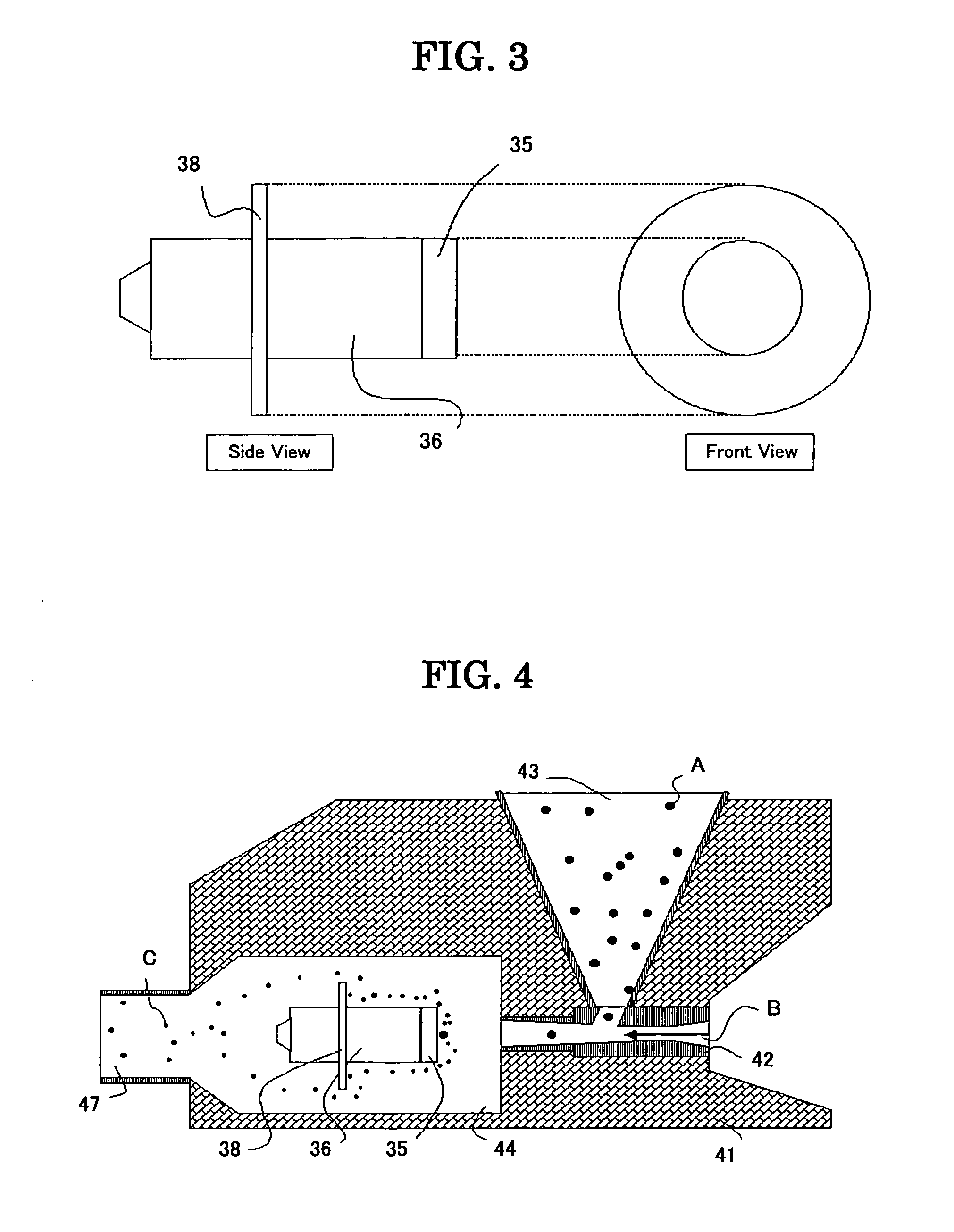Milling and classifying apparatus, collision mill, air classifier, toner, and method for producing toner
a technology of air classifier and classifier, which is applied in the field of milling and classifying equipment, air classifier, toner and method for producing toner, can solve the problems of reducing productivity, hardly milling the desired particle size of the particle, and high production cost, and achieves narrow particle size distribution, small particle size, and reduced content of coarse particles
- Summary
- Abstract
- Description
- Claims
- Application Information
AI Technical Summary
Benefits of technology
Problems solved by technology
Method used
Image
Examples
example 1-1
[0134]FIG. 4 shows an exemplary construction of a milling and classifying apparatus. As shown in FIG. 4, toner A of coarse particles to be milled was fed to injection nozzle 42 from the raw material inlet disposed at upper side of the collision mill 41. By action of high-velocity stream B ejected from nozzle 42, the toner of coarse particles flowed with stream B at a high velocity, and collided against an opposing collision plate 45 thereby was divided into fine particles. The divided particles flowed between collision-plate support 36 and the inner wall of milling room 44 and collided against collision member 38 on the way, then flowed into outlet 47.
[0135]The specifications of the milling and classifying apparatus were as follows:[0136]Model: IDS-20[0137]Maximum flow rate: 20 m3 / min[0138]Inner diameter of milling room: 231 mm[0139]Inner diameter of outlet: 152 mm
[0140]The specifications of the parts of collision mill and air classifier are shown in Table 1.
[0141]The collision plat...
examples 1-2 to 1-13
[0156]Toners were produced and the evaluations were conducted in the same manner as Example 1-1, except that the milling and classifying apparatus was constructed under the specifications shown in Table 1. The results are shown in Table 1.
example 2-1 to 2-9
[0160]A collision mill was constructed as shown in FIG. 4 in the same manner as Example 1-1, except for the specifications shown in Table 2. In Examples 2-1 to 2-9, experimental factors were radius of the collision plate R (mm), distance between the collision plate and the collision member L (mm), height of the collision member from the support, thickness of the collision member, surface roughness of the collision member, and material of the collision member. The toner utilized in Example 2-1 to 2-9 was substantially the same as that of Example 1-1.
[0161]The evaluations were performed in the same manner as Example 1-1. The results are shown in Table 2 summarily.
PUM
 Login to View More
Login to View More Abstract
Description
Claims
Application Information
 Login to View More
Login to View More - R&D
- Intellectual Property
- Life Sciences
- Materials
- Tech Scout
- Unparalleled Data Quality
- Higher Quality Content
- 60% Fewer Hallucinations
Browse by: Latest US Patents, China's latest patents, Technical Efficacy Thesaurus, Application Domain, Technology Topic, Popular Technical Reports.
© 2025 PatSnap. All rights reserved.Legal|Privacy policy|Modern Slavery Act Transparency Statement|Sitemap|About US| Contact US: help@patsnap.com



